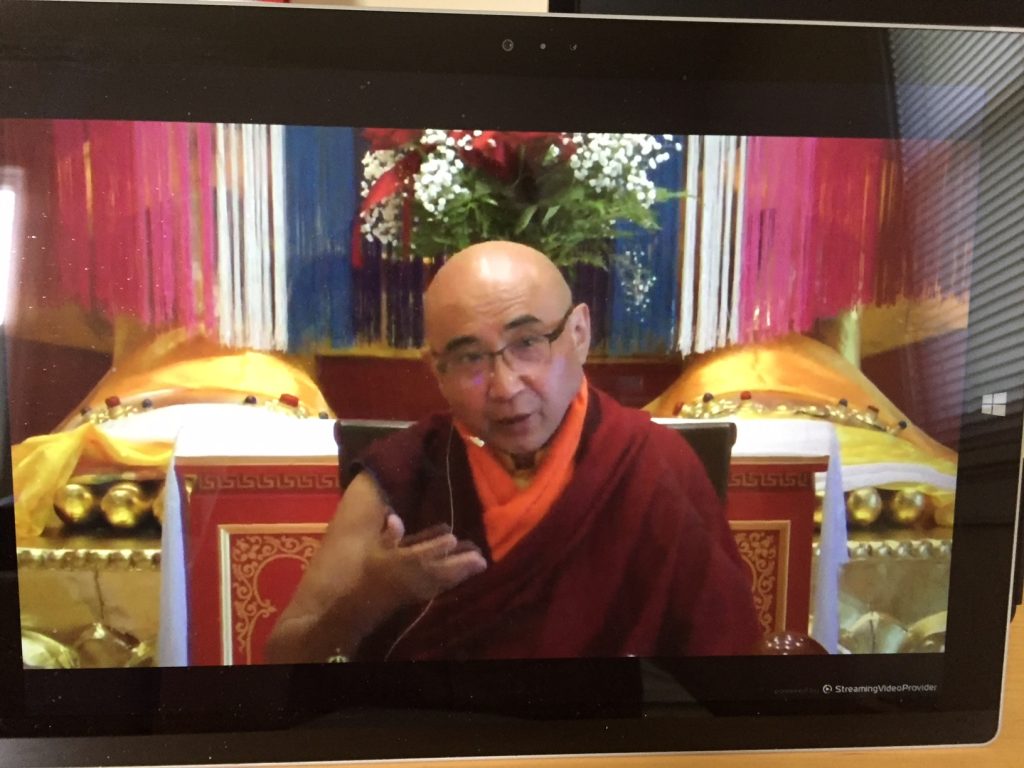Lama Tenam, who is Guru Vajradhara Kenting Tai Situpa’s longtime executive secretary and a beloved friend of PTC Monastery, gave a teaching at PTC this afternoon, and summarized for us his thoughts on the seven essential characteristics of a Buddhist.
I saw it via livestream, the video of which is available on demand by clicking here (the fee is $20 to support livestreaming costs). More good news: a second teaching on “How to Deal with Emotions,” is now available via the same link. Both teachings are in English, and though Lama Tenam occasionally double-checks with the audience to make sure he’s got the right word, his English is quite excellent.
Here are the 7 characteristics that make us Buddhist, according to Lama Tenam. The full explanation is on the video. (Note: this video may not be available anymore.)
- Knowing that our ground, or foundation, is perfect, i.e., Buddha nature. We may have temporary problems, but inside all is good, and that is where we need to seek lasting solutions.
- Renunciation, which means knowing the reality of our existence, which is summarized in the Buddha’s Four Noble Truths and also the four reminders, aka, the four ordinary preliminaries of the Kagyu path.
- Bodhicitta: the path is not just about being peaceful or even refraining from harming others, but we also need to cultivate loving kindness and compassion.
- Our view is interdependent manifestation, that everything and everyone is related to everything and everyone else. If we contemplate this, it automatically humbles our ego and helps us view our problems and their solutions in a wider context.
- Our actions are constructive, not causing harm or mischief for others or for ourself. It doesn’t mean we need to always appear peaceful or always be laughing–in fact, harm can also be done under the guise of a peaceful demeanor or a joke. If we are the cause of disharmony to others or ourself, that is not Buddhist action.
- The essence of our meditation is emptiness, which can be summarized as nonexistence of an individual self, and nonexistence of a self of phenomena. This is not easy to explain in words, but can only be realized in meditation. In essence, emptiness is the same as interdependence.
- The fruition of points 1-6, which is realization of the ground we began with. When we are unenlightened, we say our nature is Buddha nature. When we reach full enlightenment, our nature is then Buddha.

